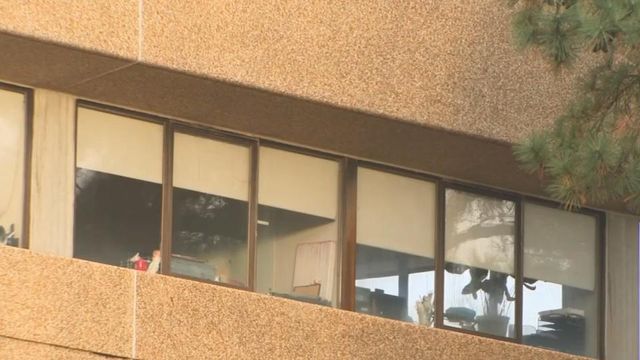Records: NC State knew of toxic chemical concerns inside Poe Hall months before closing building
New records obtained by WRAL 5 On Your Side reveal that North Carolina State University was aware of concerns regarding cancer-causing toxic chemicals inside Poe Hall over a month and a half before the university decided to evacuate the building.
- Poe Hall, an academic building, closed to students, faculty and staff Nov. 17 weeks after environmental testing revealed PCBs.
- PCBs are cancer-causing chemicals that do not break down easily and can be found in the air.
- Classes will be held virtually or at alternate locations while further testing is completed.
- PCB-containing building materials were used in construction between 1950 and 1979 before they were banned. Poe Hall was built in 1971.
On Sept. 25, the North Carolina Department of Labor Occupational Safety and Health Division sent North Carolina State University a letter indicating they had received a "concerning complaint" from an employee.
The complaint alleged that employees had been exposed to lead-based paint and possibly PCBs, which can cause cancer and other serious health issues. It also claimed that employees had not been informed of the “presence, location, and quantity of asbestos-containing materials, despite ongoing renovations and asbestos abatement being conducted.”
According to the EPA, PCBs are linked to cancer, reproductive issues and weakened immune systems, among other things.
The letter was issued 53 days before the university evacuated staff and students from Poe Hall. On Nov. 16, a letter to students and staff sent by the university noted that testing found the "presence of environmental contaminants, PCBs, in the building." The university added that it was closing Poe Hall out of an "abundance of caution." However, the university did not disclose specific dates for when the tests were conducted.
Chancellor Randy Woodson sent a Nov. 21 letter to the NC State community, writing in part:
"Our first priority is the well-being of those who work, teach and learn in the building and preserving academic continuity while we thoroughly investigate environmental conditions ... As we move forward with more comprehensive testing in Poe Hall, we’ll work collaboratively with campus partners to ensure continuity and consult experts to help us gain complete understanding of the building’s environment. We’ll also communicate progress and pertinent updates with individuals who are impacted by the closure."
In the letter, Woodson called the news "unsettling" for people impacted and thanked everyone who has had to adjust as classes are held virtually or in alternate locations.
Since the university's official announcement, current staff and students, as well as former students who spent time studying inside Poe Hall, told 5 On Your Side they're not receiving enough information from the university.
"It opened a Pandora's box of questions," said Denise, an NC State parent who wished to keep her last name private to protect her son's identity. "The email was so bland and swept under the rug; it's quite infuriating as a parent."
Denise says her son had a three-hour weekly lab inside Poe Hall this semester and has been sick for months. "He is the kind of kid who never misses classes, but that's changed," she said. She describes his symptoms as flu and allergy-like, which persisted despite medical intervention.
"He took ten days of amoxicillin; nothing changed, and Dayquil and NyQuil, and we were taking allergy pills. It got to a point where his eyes were so beet red after our third trip to urgent care — he had to start taking eye drops because it looked like he hadn't slept in days," she said.
Denise is far from the only person wondering if the conditions in Poe Hall contributed to an illness. "I spent a lot of time in that building. I wondered if or how this contributed to my health issues today," said Leslie, a former student who did not want to give her last name.
Leslie said she studied at NC State University from 2000 to 2006 and developed a thyroid condition while at school. She was later diagnosed with thyroid cancer. "I know the toxins in Poe Hall can't be directly linked to my health issues, but I do feel there could be some contribution," Leslie said.
WRAL 5 On Your Side asked NC State if it would provide health guidance to affected people. The university suggested students and staff talk to their physician or campus health.
"I mean, the amount of money they're making on the parents to get that education is staggering. Why could not more have been done?" asked Denise.












